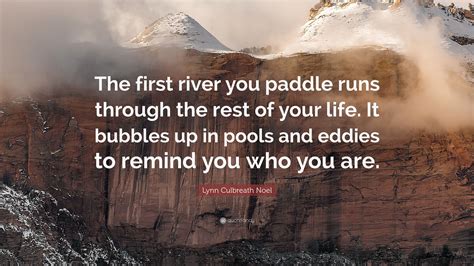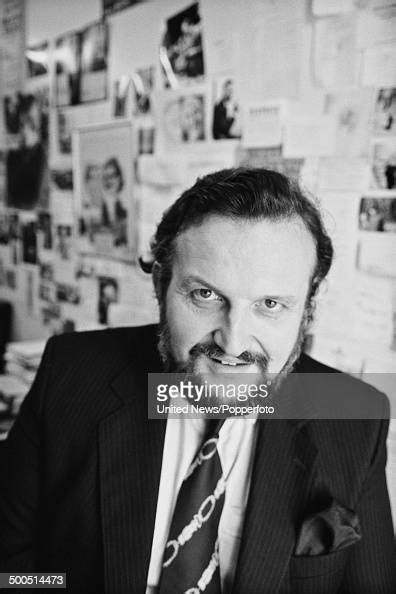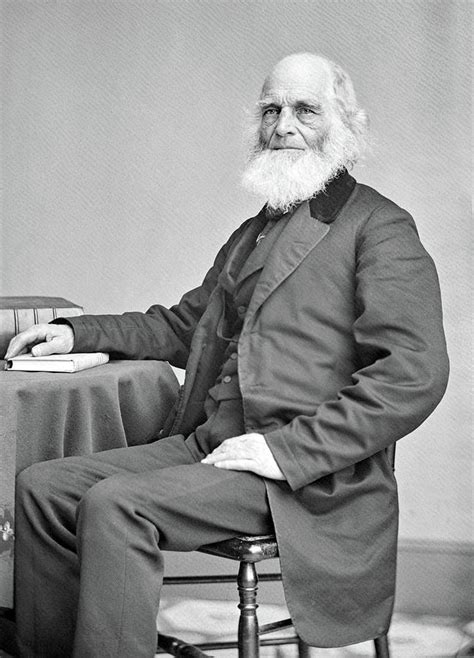A Quote by Cyril Connolly
The English language is like a broad river on whose bank a few patient anglers are sitting, while, higher up, the stream is being polluted by a string of refuse-barges tipping out their muck.
Related Quotes
Be wild; that is how to clear the river. The river does not flow in polluted, we manage that. The river does not dry up, we block it. If we want to allow it its freedom, we have to allow our ideational lives to be let loose, to stream, letting anything come, initially censoring nothing. That is creative life. It is made up of divine paradox. To create one must be willing to be stone stupid, to sit upon a throne on top of a jackass and spill rubies from one’s mouth. Then the river will flow, then we can stand in the stream of it raining down.
It's hard to see a river all at once, especially in the mountains. Down on the plains, rivers run in their course as straightforward as time, channeled toward the sea. But up in the headwaters, a river isn't a point where you stand. In the beginnings of the river, you teeter on the edge of a hundred tiny watersheds where one drop of water is always tipping the balance from one stream to another. History changes with each tiny event, shaping an outcome that we can only fully grasp in hindsight. And that view changes as we move farther downstream.
I have a funny relationship to language. When I came to California when I was three I spoke Urdu fluently and I didn't speak a word of English. Within a few months I lost all my Urdu and spoke only English and then I learned Urdu all over again when I was nine. Urdu is my first language but it's not as good as my English and it's sort of become my third language. English is my best language but was the second language I learned.
Someone once told me that children are like kites. You struggle just to get them in the air; they crash; you add a longer tail. Then they get caught in a tree; you climb up and bring them down, and untangle the string; you run to get them aloft again. Finally, the kite is airborne, and it flies higher and higher, as you let out more string, until it's so high in the sky, it looks like a bird. And if the string snaps, and you've done your job right, the kite will continue to soar in the wind, all by itself.
The revival of Hebrew, as a spoken language, is a fascinating story, which I'm afraid I cannot squeeze into a few sentences. But, let me give you a clue. Think about Elizabethan English, where the entire English language behaved pretty much like molten lava, like a volcano in mid-eruption. Modern Hebrew has some things in common with Elizabethan English. It is being reshaped and it's expanding very rapidly in various directions. This is not to say that every one of us Israeli writers is a William Shakespeare, but there is a certain similarity to Elizabethan English.
By the time it came to the edge of the Forest, the stream had grown up, so that it was almost a river, and, being grown-up, it did not run and jump and sparkle along as it used to do when it was younger, but moved more slowly. For it knew now where it was going, and it said to itself, “There is no hurry. We shall get there some day.” But all the little streams higher up in the Forest went this way and that, quickly, eagerly, having so much to find out before it was too late.
A self is, by its very essence, a being with a past. One must look lengthwise backwards in the stream of time in order to see theself, or its shadow, now moving with the stream, now eddying in the currents from bank to bank of its channel, and now strenuously straining onwards in the pursuit of its chosen good.
The stream of passing years is like a river with people being carried along in the current. Some are swept along, protesting, fighting all the way, trying to swim back up the stream, longing for the shores that they have passed, clutching at anything to retard their progress, frightened by the onward rush of the strong current and in danger of being overwhelmed by the waters. Others go with the current freely, trusting themselves to the buoyancy of the water.

































